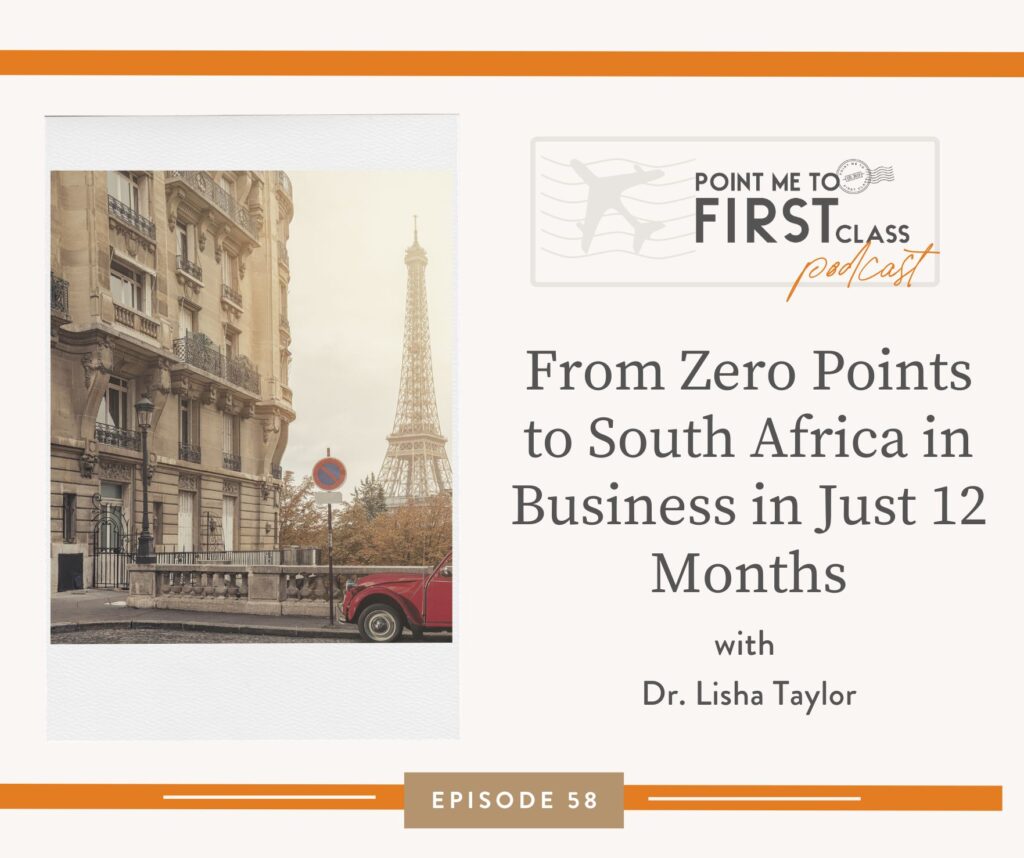April 8, 2024
From Zero Points to South Africa in Business in Just 12 Months with Dr. Lisha Taylor
Episode Description
This week, we’re joined by a personal finance expert who has only recently harnessed the power of transforming her expenses into wish-list travel experiences through credit card points. In less than a year, she’s made significant progress and even utilized points to book a family trip to South Africa.
Dr. Lisha Taylor is a wealth strategist, “doctorpreneur,” professional writer, and podcaster, advocating for physician wellness through financial literacy. As a Board Certified Primary Care Sports Physician, she’s also the co-founder of Wealth Minded MD, a company and podcast that empowers women in medicine to build wealth and create the lives they desire.
Initially, Dr. Taylor navigated the common uncertainties many have when starting with credit card points. Now, points have become a key component of her wealth strategy. Tune in this week to learn how Dr. Taylor’s engagement with Points Made Easy has unlocked new travel opportunities by leveraging her everyday expenses, even though she doesn’t see herself as what she would call a big spender.
To be the first to know when my Points Made Easy course reopens for enrollment, join the waitlist here!
What You’ll Learn from this Episode
- How Dr. Lisha Taylor’s passion for personal finance started and how it’s evolved over the years.
- Why she believes one of the keys to wellness is financial literacy.
- How Dr. Taylor has incorporated credit card points into the personal finance work she does with doctors.
- Dr. Taylor’s negative experience of having and using credit cards as a young adult.
- How she first started leveraging her expenses to earn credit card points.
- Some of the mistakes Dr. Taylor made early on in her points journey.
- Why you don’t need a seven-figure salary or a high-turnover business to earn enough points to travel in luxury.
- How being in Points Made Easy for just six months has opened up new travel opportunities for Dr. Taylor.
Featured on the Show:
- Follow me on Instagram
- Send me an email
- Get on the waitlist for the Points Made Easy Course here!
- Get My Cash-Back Credit Card Cheat Sheet!
- If you have any questions or you want me to dive deeper into a specific topic, email me here: podcast@pointmetofirstclass.com
- Dr. Lisha Taylor: Website | Instagram
- Wealth Minded MD: Website | Instagram | Podcast
- Financial Grand Rounds Facebook Group
- I Will Teach You to Be Rich by Ramit Sethi
- Die with Zero by Bill Perkins
- Crazy Rich Asians – Movie
- Trafalgar Tours
Click here to download full episode transcript

Enjoy the Show?
- Don’t miss an episode, follow the podcast on Apple Podcasts, Spotify, Stitcher, or RSS.
- Leave me a review in Apple Podcasts.
Point Me to First Class is the show for professionals and business owners with higher-than-average personal or business expenses, who want to learn to leverage these expenses into credit card points they can spend on travel.
Each week, I share valuable tips, tools, and strategies to help you uplevel your skills earning and redeeming credit card points, so you can expand your travel and expand your experiences.